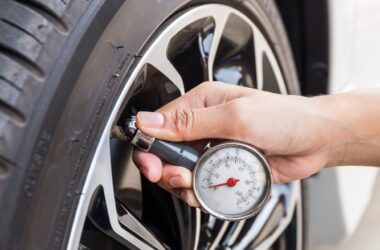[ad_1]
Auto Maintenance: Keeping Your Vehicle in Top Shape
Your vehicle is an investment that requires regular maintenance to keep it running smoothly and efficiently. Regular auto maintenance not only extends the lifespan of your car but also ensures your safety on the road.
One of the most important aspects of auto maintenance is changing your oil regularly. Engine oil lubricates and protects the engine’s internal components, preventing wear and tear. Over time, oil breaks down and becomes less effective, which can lead to engine damage. It is recommended to change your oil every 3,000 to 5,000 miles, depending on your vehicle’s specifications. Regular oil changes also help improve fuel efficiency, saving you money at the pump.
Tire maintenance is another critical aspect of auto maintenance. Proper tire maintenance not only enhances your vehicle’s performance but also ensures your safety. Regularly check your tire pressure and adjust it according to the manufacturer’s recommended levels. Improper tire pressure can lead to poor fuel efficiency, reduced handling, and an increased risk of a blowout. Additionally, inspect your tires for any signs of wear and tear, including bulges, cracks, or uneven tread wear. Rotating your tires at regular intervals also helps distribute wear evenly and extends their lifespan.
Brake maintenance is essential for your safety. If you notice squeaking, grinding, or a spongy brake pedal, it’s time to have your brakes checked. Regular brake maintenance helps prevent brake failure, ensuring your ability to stop quickly and effectively when necessary. Maintaining your brakes includes checking the brake fluid levels, inspecting brake pads and rotors for wear, and replacing them when required. Neglecting brake maintenance can lead to costly repairs and, more importantly, jeopardize your safety on the road.
Regular fluid checks and replacements are also crucial for auto maintenance. This includes coolant, transmission fluid, power steering fluid, and brake fluid. Each fluid has its own function to keep your vehicle’s systems working properly. Over time, these fluids break down and lose their effectiveness. Replacing them at the recommended intervals helps prevent system failures and potentially costly repairs.
Keeping your vehicle’s air filter clean is another important aspect of auto maintenance. The air filter prevents dust, dirt, and debris from entering the engine. A clogged air filter restricts airflow, reducing your vehicle’s performance and fuel efficiency. It is recommended to replace your air filter every 12,000 to 15,000 miles or as recommended by your vehicle’s manufacturer.
Additionally, regular inspections of belts, hoses, and the battery are vital for auto maintenance. Belts and hoses can deteriorate over time due to heat and friction, leading to potential breakdowns. Inspecting them for cracks, bulges, or signs of wear and tear helps prevent unexpected failures. Similarly, a well-maintained battery ensures reliable starting power, and regular inspections prevent corrosion and other issues.
In conclusion, auto maintenance is essential for keeping your vehicle in top shape. Regular oil changes, tire maintenance, brake checks, fluid replacements, clean air filters, and inspections of belts, hoses, and the battery all contribute to a safe and efficient driving experience. By investing in regular maintenance, you not only extend the lifespan of your vehicle but also protect your investment and ensure your safety on the road. Remember, routine maintenance is far more cost-effective than dealing with major repairs due to neglect. Take care of your vehicle, and it will take care of you.
[ad_2]







